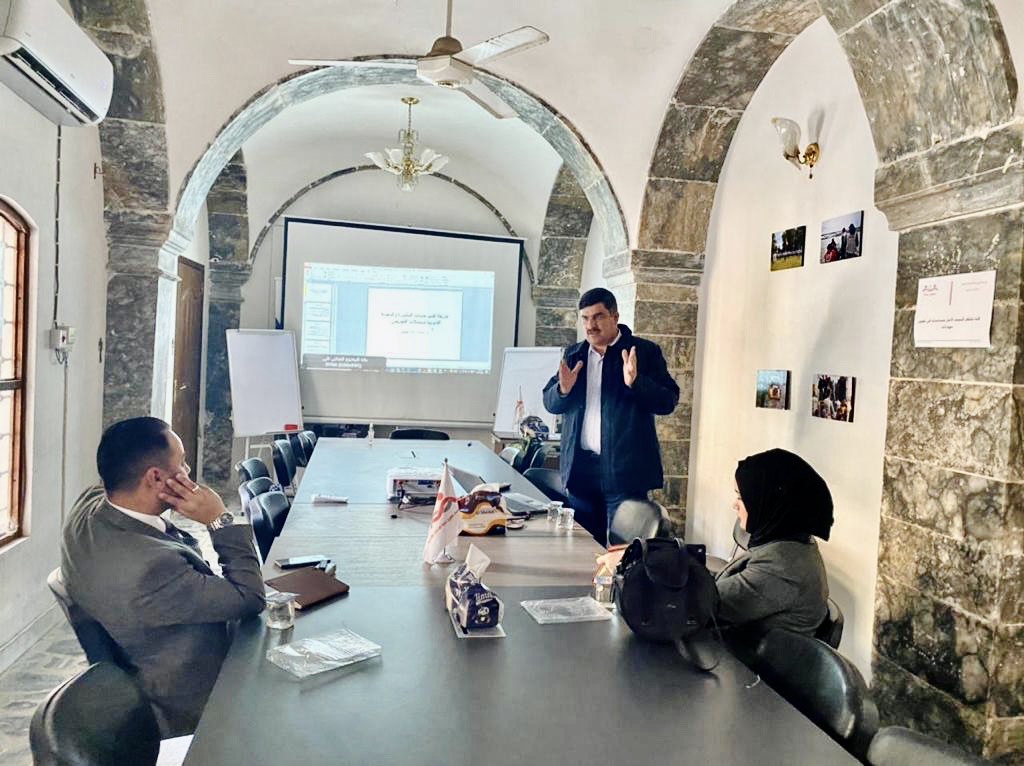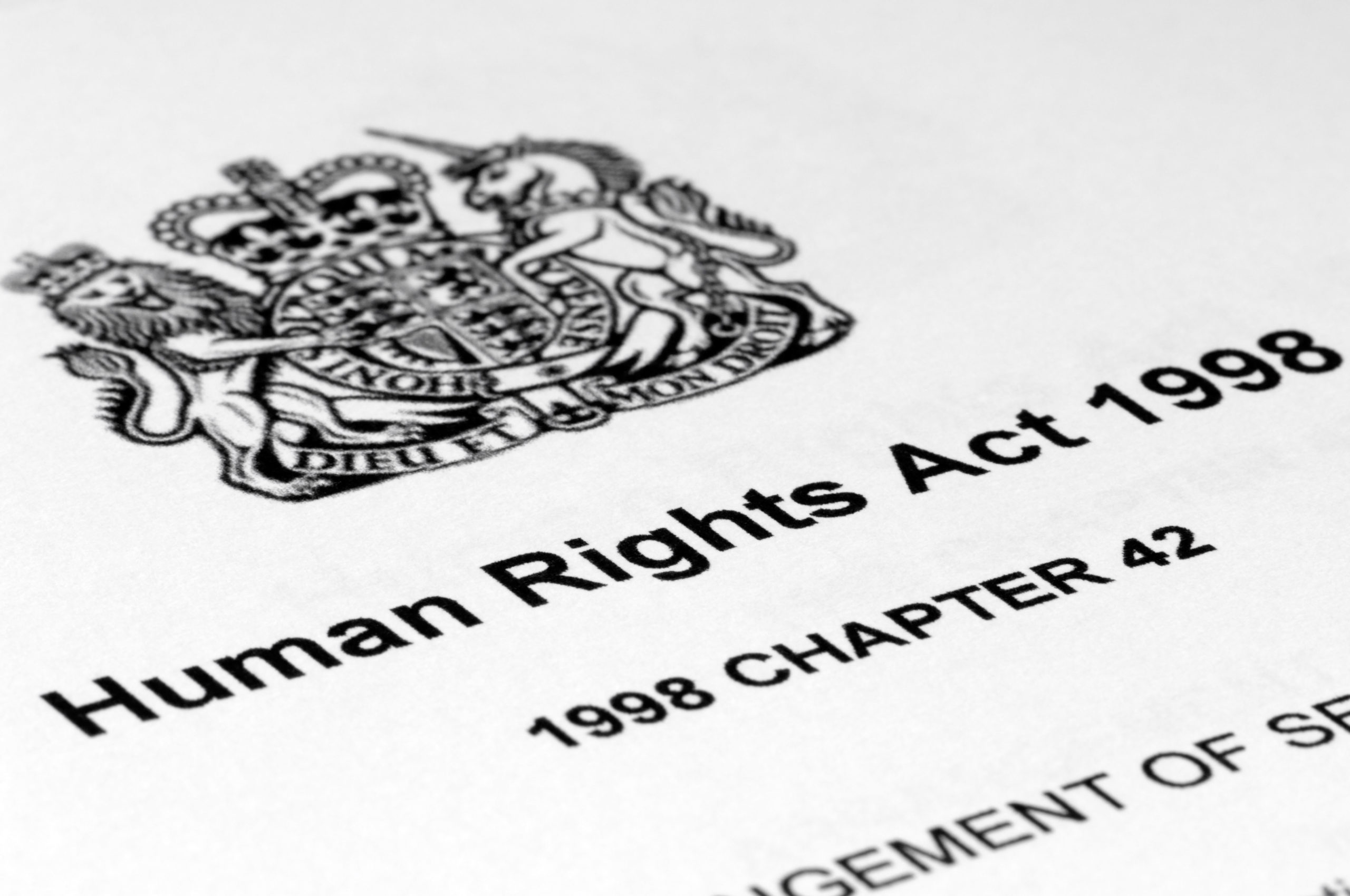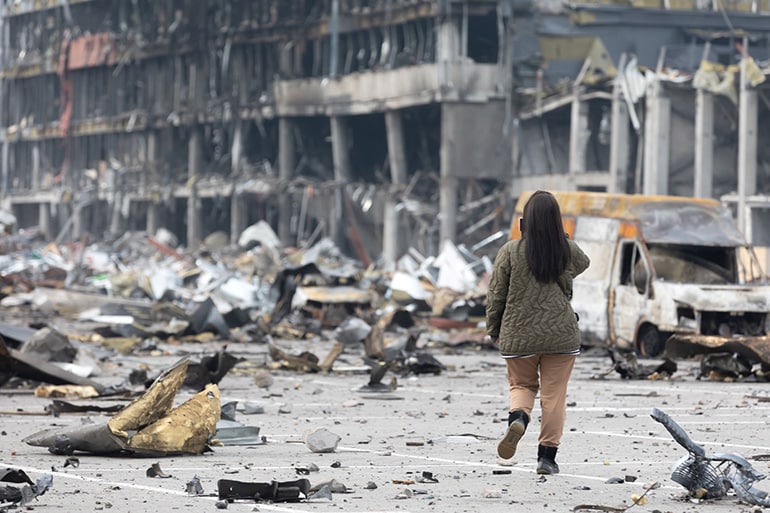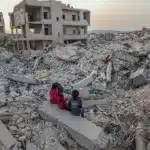Ceasefire opens legal helpdesk in Mosul to promote civilian access to reparation
December 2021
Civilians harmed by military operations have a right to compensation under Iraqi law, but the complex requirements to file a claim have left the process out of reach for many. Ceasefire’s new legal helpdesk in Mosul hopes to solve some of those problems.
Civilians harmed by military operations have a right to compensation under Iraqi law, but the complex requirements to file a claim have left the process out of reach for many. Ceasefire’s new legal helpdesk in Mosul hopes to solve some of those problems.
Mosul served as ISIS’s capital in Iraq for some three years. The intensity and length of the military campaign to retake the city from ISIS control left many neighbourhoods reduced to rubble and caused thousands of civilian casualties. Although more than four years have passed since the end of the military operations, much of this harm has yet to be redressed.
Iraq’s Law on Compensating the Victims of Military Operations, Military Mistakes and Terrorist Actions (Law No. 20 of 2009) provides civilians with an avenue to access compensation for personal injury and property damage. However, the procedure to file a claim under the law is complex, subject to frequently changing requirements, and demanding in terms of the documentary evidence required. This can discourage many eligible civilians from accessing the compensation mechanism at all.
In collaboration with partners on the ground, Ceasefire has recently opened a legal helpdesk in Mosul to assist civilians in navigating the compensation process. Staffed by local lawyers, the helpdesk is the first initiative in the city specifically dedicated to enabling civilians to claim their right to reparation.
‘Mosul was one of the areas in Iraq most affected by the military operations to liberate it from ISIS,’ says Awos Maher, the project coordinator for the helpdesk. ‘There are thousands of affected people who have not initiated reparation requests for many reasons, the most important of which is their lack of knowledge of the application process.’
The helpdesk is open to the public four days a week. Visitors will receive pro-bono legal advice to determine whether they are eligible to apply for compensation and will be supported in the process of compiling the required documentation should they decide to apply. Civilians can also call the helpdesk hotline to receive legal advice by phone.
‘The existence of such a helpdesk, which includes specialized lawyers, is a step in the right direction to extend a helping hand to those harmed,’ says Raiyd Owaid, legal advisor working at the helpdesk. ‘We hope the project will soon expand to serve the largest possible number of affected people.’
The helpdesk will administer a small fund to cover the costs normally incurred by civilians in the preparation of compensation claims, such as transportation and photocopying costs. For the most marginalized, these costs alone can be prohibitive in accessing the compensation mechanism.
‘Despite the law’s shortcomings, Iraq remains a rare example of a country with a national-level policy providing compensation to civilians harmed in military operations,’ said Miriam Puttick, Head of Middle East and North Africa Programmes at Ceasefire. ‘All military powers should follow Iraq’s lead in recognizing civilians as rights holders, instead of just seeing them as collateral damage.’
Additional information
- Visit the Mosul helpdesk’s Facebook page (in Arabic)
- Access our Compensation Guidebook to understand the process of applying for compensation under Law No. 20 of 2009 (in Arabic)
- Read our related report, Mosul after the Battle: Reparations for civilian harm and the future of Ninewa
- Visitors to the helpdesk will also be able to receive advice about the new Yazidi Survivors’ Law once the mechanism opens for applications
- For more about Ceasefire’s work in Iraq, visit our project page here























